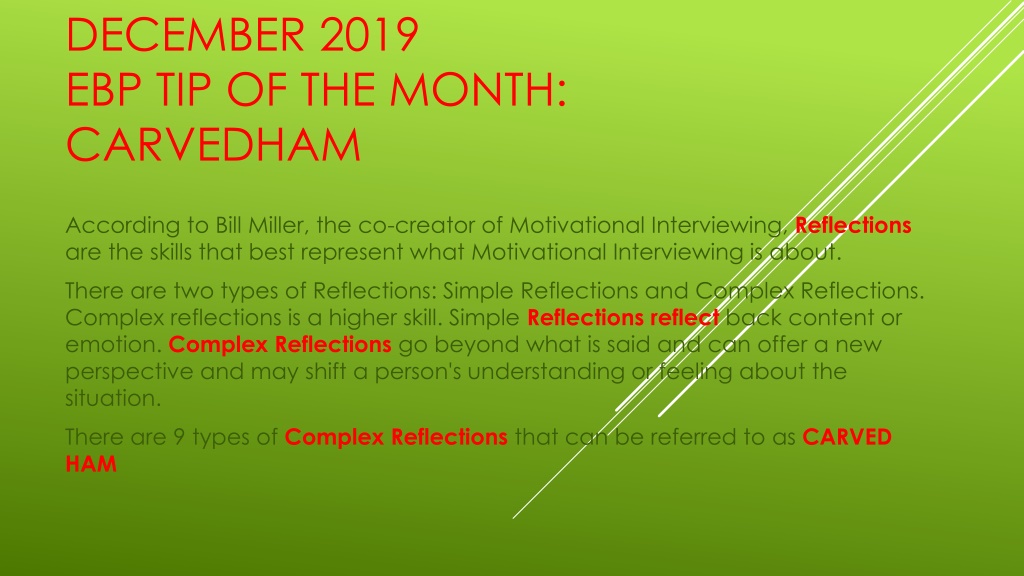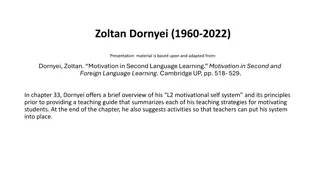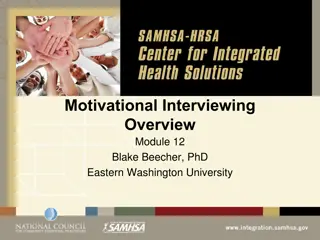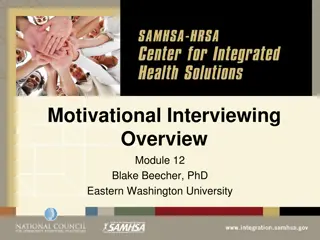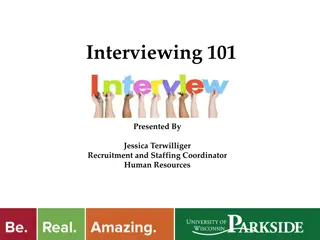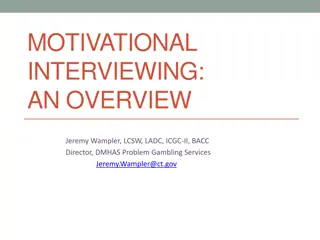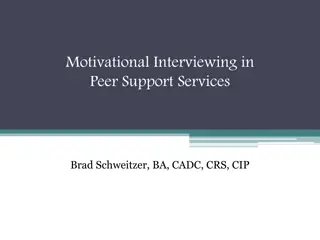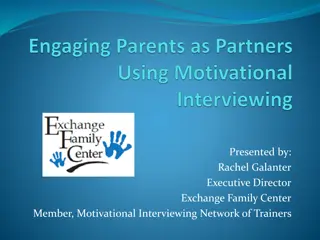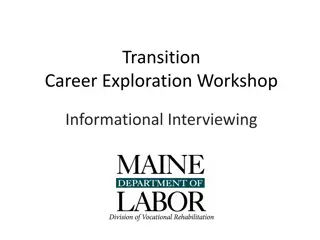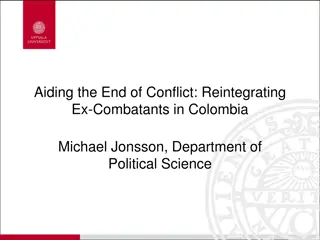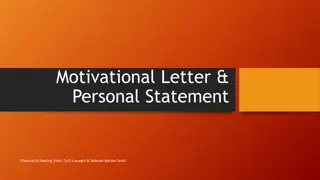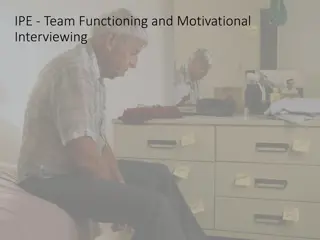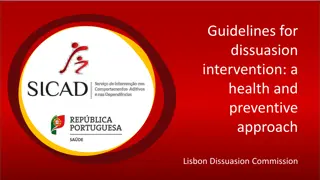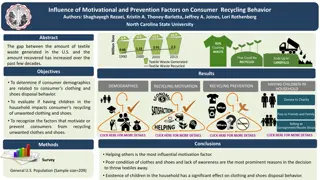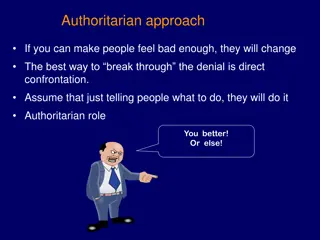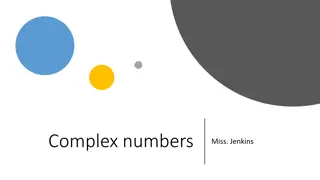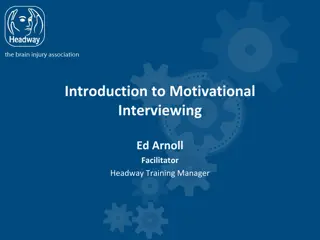Mastering Complex Reflections in Motivational Interviewing
Learn about the importance of reflections in Motivational Interviewing, with a focus on Complex Reflections such as VED (Verbalizing Unspoken Emotion), emphasizing one side, and double-sided reflections. Practice with examples on weight loss struggles and balancing responsibilities post-probation. Enhance your skills to help clients explore their thoughts and emotions effectively.
Download Presentation

Please find below an Image/Link to download the presentation.
The content on the website is provided AS IS for your information and personal use only. It may not be sold, licensed, or shared on other websites without obtaining consent from the author. Download presentation by click this link. If you encounter any issues during the download, it is possible that the publisher has removed the file from their server.
E N D
Presentation Transcript
DECEMBER 2019 EBP TIP OF THE MONTH: CARVEDHAM According to Bill Miller, the co-creator of Motivational Interviewing, Reflections are the skills that best represent what Motivational Interviewing is about. There are two types of Reflections: Simple Reflections and Complex Reflections. Complex reflections is a higher skill. Simple Reflections reflect back content or emotion. Complex Reflections go beyond what is said and can offer a new perspective and may shift a person's understanding or feeling about the situation. There are 9 types of Complex Reflections that can be referred to as CARVED HAM
The next 3 Complex Reflections are VED VERBALIZING UNSPOKEN EMOTION: Interviewer names the emotion that the client has implied, but never actually stated. EMPHASIZING ONE SIDE: Client talks about multiple things, but the interviewer only chooses to emphasize for a particular effect. Interviewer s choice makes his complex, even if the reflection given is simple. If it feels like the interviewer is just giving a brief reflection without a conscious choice, however, the reflection can stay simple. DOUBLE SIDED: Interviewer reflects two opposing sides of what the client has been saying. 1) 2) 3)
Statement: I want to lose weight, but I just love to eat, especially sugary treats, I can t stop myself when they are in the house, I know it s not good for me. 4. VERBALIZING UNSPOKEN EMOTION You re upset you can t control your eating 5. EMPHASIZING ONE SIDE Sounds like losing weight is important for you to change your eating habits. Sounds like eating sugar is more important to you than your health 6. DOUBLE SIDED On one hand you love to eat sugary foods and the other hand losing weight is a priority for you CLICK FOR AUDIO
Im glad I got probation and not jail however coming to see you every week, picking up my kids, and going to work is really hard for me to do. I don t think I can do all of them. I like to pay my restitution because I know I was wrong but I also have to pay child support and rent. I m learning a lot from going to treatment and I m enjoying sobriety but I find hard to stay away from my old criminal friends since I ve known them all my life. PRACTICE STATEMENTS. TRY TO USE THE VED REFLECTIONS ON THESE STATEMENTS
